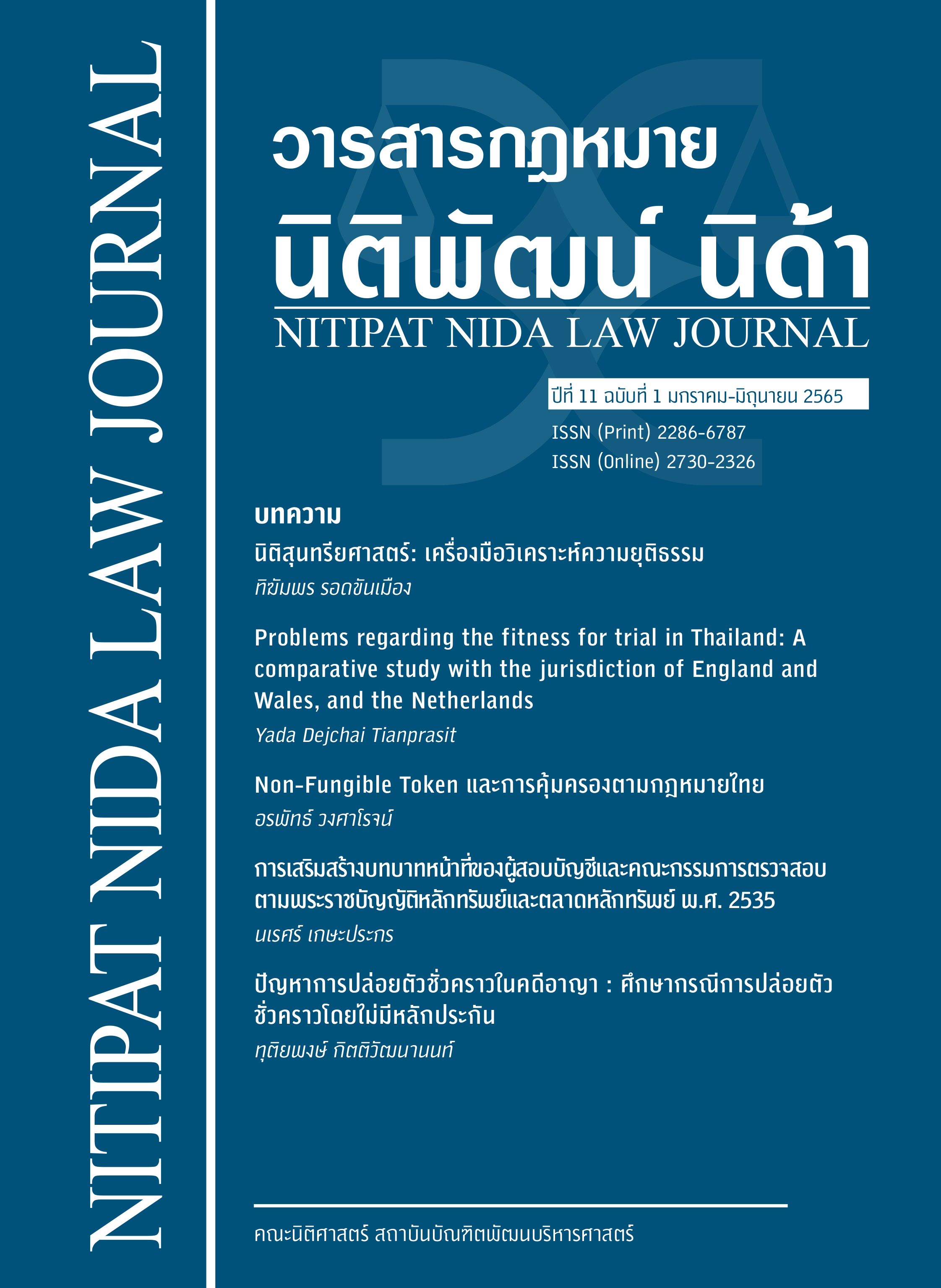Non-Fungible Token and Protection under Thai Laws
Abstract
This article aims to provide an overview of the new kind of digital asset known as Non-Fungible Token (NFT) and to collect the views and discussion on potential legal issues and consequences under the Copyright Act B.E. 2537 (1992), the Emergency Decree on Digital Asset Businesses B.E. 2561 (2018), and the Anti-Money Laundering Act B.E. 2542 (1999).
NFT is a kind of digital asset. Each token is unique, meaning one cannot be changed or replaced by another. NFT is like a digital certification, which keeps the one and only original work on blockchain network. This enables tracing of the true original owner of the digital asset, time of sales, and to whom the re-sale has been made. What has been recorded in the system cannot be imitated due to the record which was kept by computer and nodes separately in public accounts that ensures the correctness.
The digital asset which backed the issuance of the NFT mostly relates to the copyright work. Therefore, these works are protected under the Copyright Act, which gives the creator copyrights unless otherwise provided by the law. The extent of rights the purchaser has depends on the will of creator who is also the owner of work to specify in the licensing agreement. With existing risks of NFT sales transaction, the Emergency Decree on Digital Asset Businesses may not be applicable to all types of NFT. This coupled with the lack of Thai NFT marketplace and the under-review status of the SEC regulations to meet the universal application causes the laws to provide limit protection to parties to the transaction.
The fast growth of the NFT business and the lack of oversight and control by competent agency could turn this new business opportunity into a money laundering site. The anonymity of parties on sale platform and freedom to set prices as one wishes may turn the high-value art to be an object for money laundering. Although the current Anti-Money Laundering Act imposes strict reviews on the sale transactions specified therein to protect the NFT owner and the investors in the marketplace, comments and views are put forward in that not all kinds of NFTs meet the properties of “digital asset” as provided under the Emergency Decree on Digital Asset Businesses, which has left it not being reviewed by specialized competent agency under the Anti-Money Laundering Act.
Downloads
Published
How to Cite
Issue
Section
License
Copyright (c) 2022 NITIPAT NIDA Law Journal

This work is licensed under a Creative Commons Attribution-NonCommercial-NoDerivatives 4.0 International License.



